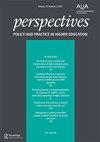哲学是如何学会说一门新语言的?
Q2 Social Sciences
Perspectives: Policy and Practice in Higher Education
Pub Date : 2022-11-21
DOI:10.1080/0907676X.2022.2145908
引用次数: 0
摘要
摘要:哲学是如何学会说一门新语言的?也就是说,一些特定的语言是如何成为表达哲学思想的手段的?在本文中,我提出了一个基于四个历史案例研究的答案,并认为这个答案对当代哲学有着广泛的启示。我从乔纳森·雷(Jonathan Rée)对16世纪哲学翻译成英语的描述开始,以及那些希望大规模或经过修改获得外国术语的哲学家译者与那些希望使用现有单词并将其从普通用法转化为哲学用法的哲学家译者之间的争论。我概述了“习得”和“转化”这两个双重过程是如何在从希腊语到拉丁语、从希腊语和阿拉伯语以及从希腊语与阿拉伯语到Ǵ'́z的哲学翻译中表现出来的,并认为这方面的比较工作可以产生有趣而重要的结果。我认为,雷的方法不仅有助于从历史上思考哲学翻译,而且不同语言之间的哲学翻译对当代哲学也很重要,因为它揭示了用某种特定语言表达的哲学理论的语言预设,这构成了一个反对哲学中盛行的单语主义的论点。本文章由计算机程序翻译,如有差异,请以英文原文为准。
How does philosophy learn to speak a new language?
ABSTRACT How does philosophy learn to speak a new language? That is, how does some particular language come to serve as the means for the expression of philosophical ideas? In this paper, I present an answer grounded in four historical case studies and suggest that this answer has broad implications for contemporary philosophy. I begin with Jonathan Rée’s account of philosophical translation into English in the sixteenth century, and the debate between philosopher-translators who wanted to acquire – wholesale or with modifications – foreign terms, and those who wished to take existing words and transform them from their ordinary to a philosophical use. I sketch how these twin processes of ‘acquisition’ and ‘transformation’ manifested themselves in philosophical translations from Greek to Latin, Greek to Arabic and both Greek and Arabic to Gə’əz and argue that comparative work in this vein could yield interesting and significant results. I suggest that not only is Rée’s approach useful for thinking about philosophical translation historically, but that philosophical translation between very different languages is important for contemporary philosophy insofar as it reveals the linguistic presuppositions of philosophical theories expressed in some particular language, and that this constitutes an argument against the prevailing monolingualism in philosophy.
求助全文
通过发布文献求助,成功后即可免费获取论文全文。
去求助
来源期刊

Perspectives: Policy and Practice in Higher Education
Social Sciences-Education
CiteScore
2.50
自引率
0.00%
发文量
24
 求助内容:
求助内容: 应助结果提醒方式:
应助结果提醒方式:


